Four Nights and a Wall
No occurrences found for this timeframe (next 6 months from today).

“Four Nights and a Wall,” co-sponsored by the Goethe-Institut, is a four-part exploration of theological political fragments of German-Jewish philosophy before the Holocaust. Inspired by the tradition of Freies Jüdisches Lehrhaus (Free Jewish Schools), the series—hosted by filmmaker Udi Aloni and philosophy professor Omri Boehm, with presentations from scholars, artists, and writers Arielle Angel, Slavoj Žižek, Meron Mendel, Haviva Pedaya, and Rasha Nehas—aims to make the work of philosophers such as Franz Rosenzweig, Walter Benjamin, and Gershom Scholem accessible to an audience outside of academia. Read more about each event below!
This series will take place at the Goethe-Institut’s New York location, at 30 Irving Place in Manhattan. The building is ADA compliant. Jewish Currents highly recommends taking a Covid-19 rapid test before entering the venue, and regardless of results, please do not attend if you are feeling ill. For accommodation requests or questions about accessibility, please reach out to events@jewishcurrents.org.
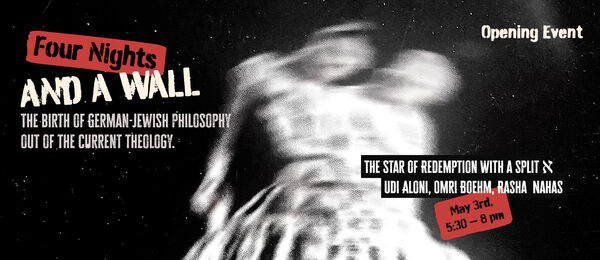
The Star of Redemption with a Split א
Wednesday, May 3rd from 5:30pm - 8pm ET
The series’ opening event features an exhibition of new work by Udi Aloni, an hour with Berlin-based Palestinian singer Rasha Nahas, and a conversation about Franz Rosenzweig’s The Star of Redemption and Edward Said’s Freud and the Non-European.
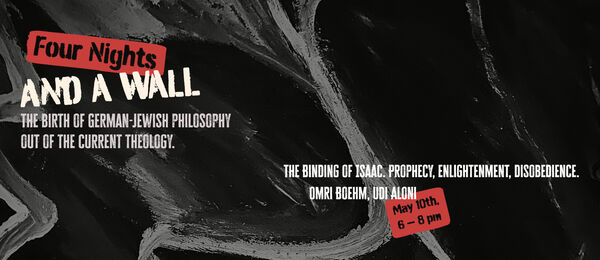
The Binding of Isaac: Prophecy, Enlightenment, Disobedience
Wednesday, May 10th from 6:30pm - 8pm ET
Drawing on Kant and Kierkegaard, philosopher Omri Boehm re-examines religious interpretations of Genesis to consider how disobedience underlies the monotheistic model of faith presented by Abraham.
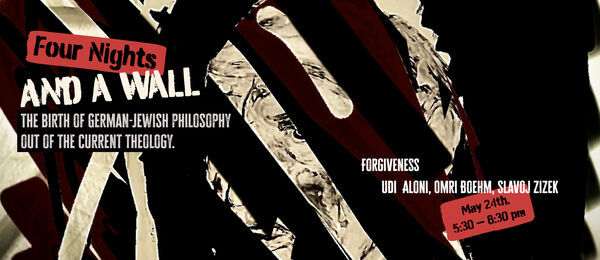
Wednesday, May 24th from 5:30pm - 8pm ET
The third event will feature a screening of Udi Aloni’s Forgiveness, introduced by the philosopher and cultural theorist Slavoj Žižek.
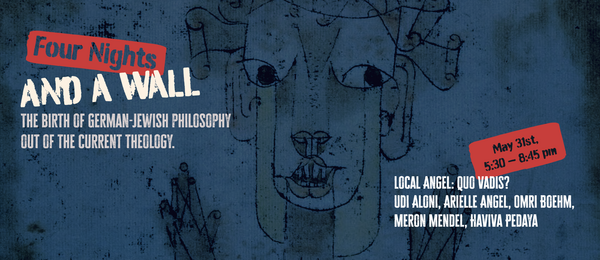
Wednesday, May 31st from 5:30pm - 8pm ET
Concluding the series, Omri Boehm, Udi Aloni, Meron Mendel, Haviva Pedaya, and Arielle Angel will reflect on the relations between academia, art, and activism over the last century. The discussion will be followed by a screening of Udi Aloni’s Local Angel.
Arielle Angel is the editor-in-chief of Jewish Currents.
Udi Aloni is a filmmaker, writer, visual artist, and political activist whose works focus on the relationships between art, theory, and action. His book, What Does a Jew Want?, was published by Columbia University Press, and his latest film, Why is We Americans, explores the legacy of African American poet Amiri Baraka. Aloni lives in Berlin, New York, and Tel Aviv.
Omri Boehm is a philosopher and associate professor of philosophy at the New School for Social Research. He is known for his interpretation of the Binding of Isaac and his work on Spinoza and Kant. His latest book, Radical Universalism, was published in Germany in 2022. Boehm’s writings have appeared in the New York Times, Washington Post, Haaretz and Die Zeit, among others.
Meron Mendel is director of the Anne Frank Educational Center and professor of transnational social work at the Frankfurt University of Applied Sciences. He studied history and education in Haifa and Munich. Mendel’s research interests include the present of anti-Semitism and the future of memory culture. His book Talking about Israel: A German Debate will be published in 2023 by Kiepenheuer & Witsch.
Rasha Nahas is a Berlin-based Palestinian singer-songwriter from Haifa. She released her first album in 2016 and toured across Europe, South America, and Asia. Nahas also writes and performs music for theater productions, including for Gorki Theater (Berlin) and Thalia Theater (Hamburg). Her latest album Amrat (2023) combines contemporary electronica with old-school singing-songwriting.
Haviva Pedaya is an Israeli poet, author, cultural researcher, and professor of Jewish history at Ben-Gurion University, where she is head of the Elyachar Center for Studies in Sephardi Heritage.
Slavoj Žižek is a Slovenian philosopher, cultural theorist, and public intellectual. He primarily works on continental philosophy (particularly Hegelianism, psychoanalysis, and Marxism) and political theory.
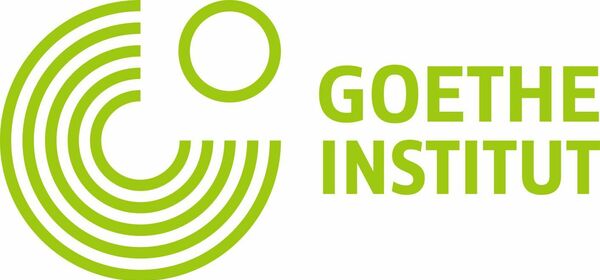
The Goethe-Institut is Germany’s cultural institute, operating worldwide. We promote knowledge of the German language abroad and foster international cultural cooperation. We have been operating in New York since 1969 and are a hub of ideas, support, education, and exchange.